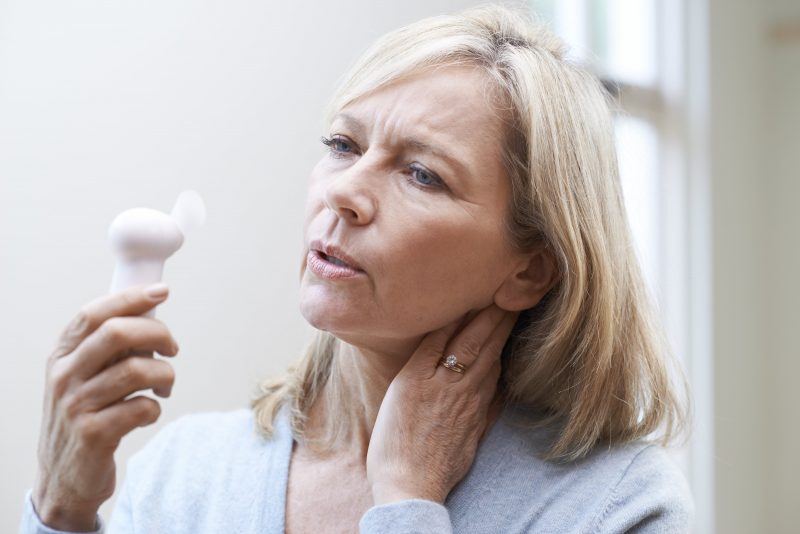
How Can You Cure Hot Flashes?
By jaclynU in Clinical Research Studies,Uncategorized
Is There a Cure for Hot Flashes?
A hot flash is the most common symptom of menopause and perimenopause. It is extremely common, with more than two-thirds of North American women experiencing them before and during menopause. Hot flashes last for a very short period of time and can last anywhere from 30 seconds to a few minutes.
Most women will only experience hot flashes for 6-24 months, but night sweats can last up to 11 years or more for some women. Hot flashes can be mild, while other people may experience debilitating hot flashes. Women can feel them several times a day, and can also often feel when they are coming on. It is important to know what to do during this uncomfortable time during menopause so that you can keep your hot flash symptoms at bay and stay as comfortable as possible.
What Happens During Hot Flashes?
In order to overcome hot flashes, it is important to know what your body is doing during a hot flash. According to Healthline, Menopause is the main cause of hot flashes. When you are going through menopause, the levels of the estrogen hormone fall. This drop essentially throws off your body’s internal thermostat. Low levels of estrogen send a mixed signal to your brain that you are too hot. The blood vessels near the surface of your skin widen to release heat, which creates the red flush on your skin. Your heart rate goes up, and sweat is released to cool you down.
These low levels of estrogen that trick your body into being hot can be managed with hormone therapy. While it is not a cure, it can help people live normal lives with the help of other prevention therapy.
Symptoms of Hot Flashes
The most typical symptoms of hot flashes include:
- Warm skin
- Red flush to the skin
- Sweating
- Tingling sensation in fingers
- Increased heart rate
Lifestyle Changes
While there is no absolute cure for hot flashes, there are many things you can do to help prevent them. Aside from hormone therapy to help keep estrogen levels high, you can make some changes to your lifestyle. Some of these lifestyle changes include:
- Losing weight
- Dietary changes – No more spicy food, hot drinks, alcohol or caffeine
- Loose clothing
- Avoiding hot rooms or being in hot temperatures
- Keeping a fan on hand
- Avoiding extra stress and anxiety
Hot Flashes Clinical Study
Another way you can help your hot flashes is to take part in a hot flash clinical study. There is new research associated with hot flashes, and participating in a clinical study will allow you access to the newest techniques. The final step to putting medication on the market is to test them on people, so you will be making a huge contribution to science and the studies surrounding hot flashes. If you’re ready to get more information on a clinical to help your hot flashes, call us.

Leave a Comment
You must be logged in to post a comment.